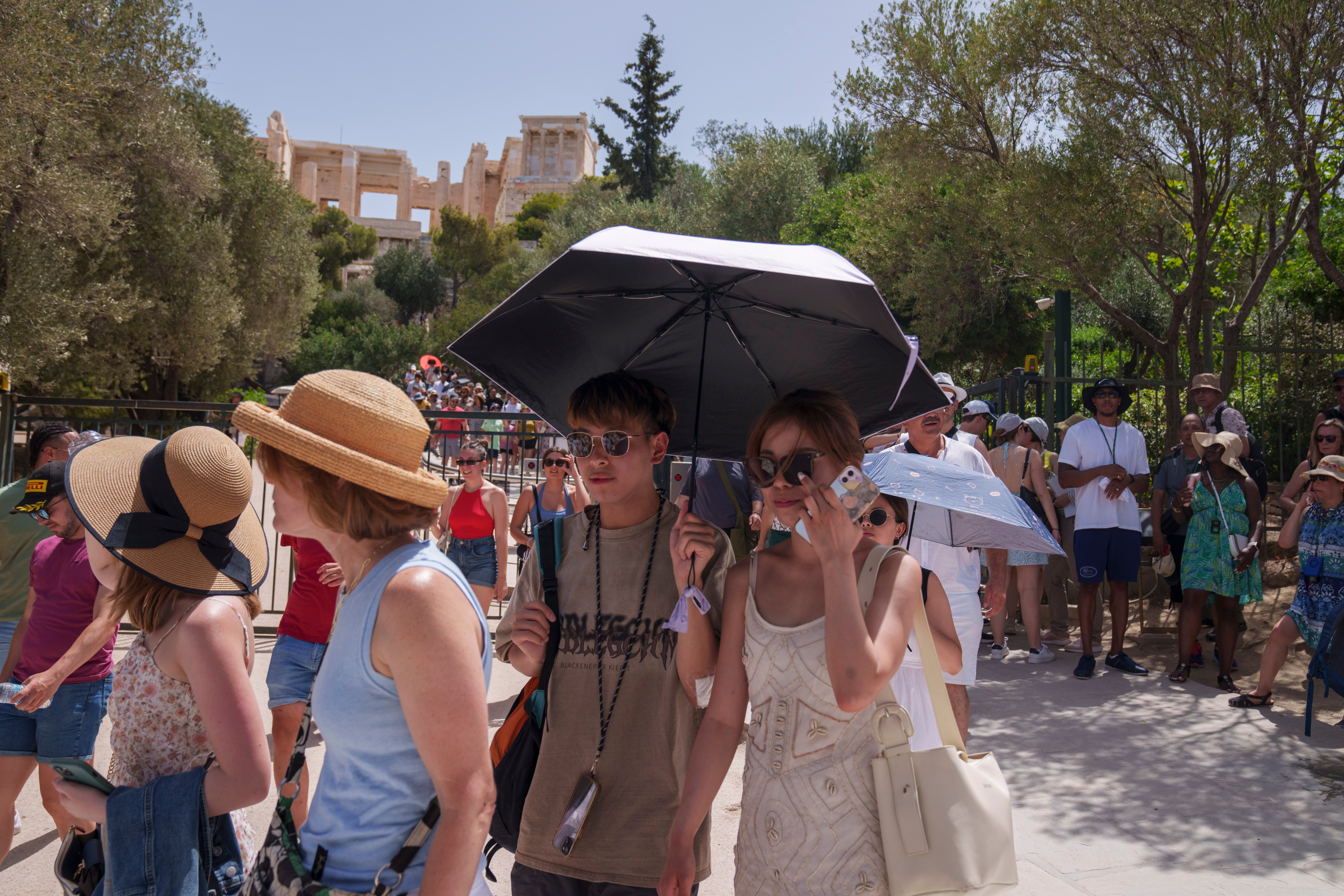Fresh warning to tourists as extreme heatwave in Greece expected
The new heatwave comes on the heels of the hottest June on record in Greece

Your support helps us to tell the story
From reproductive rights to climate change to Big Tech, The Independent is on the ground when the story is developing. Whether it's investigating the financials of Elon Musk's pro-Trump PAC or producing our latest documentary, 'The A Word', which shines a light on the American women fighting for reproductive rights, we know how important it is to parse out the facts from the messaging.
At such a critical moment in US history, we need reporters on the ground. Your donation allows us to keep sending journalists to speak to both sides of the story.
The Independent is trusted by Americans across the entire political spectrum. And unlike many other quality news outlets, we choose not to lock Americans out of our reporting and analysis with paywalls. We believe quality journalism should be available to everyone, paid for by those who can afford it.
Your support makes all the difference.Greek authorities have warned of an impending weeklong heatwave during the summer tourist season, with a high risk of dangerous wildfires, as much of southern Europe sweltered under high temperatures.
The Ministry for Civil Protection and Climate Change said southwesterly winds from Africa would bring temperatures sometimes exceeding 40 degrees Celsius (104 Fahrenheit) at least until 19 July.
The new heatwave comes on the heels of the hottest June on record in Greece, according to preliminary weather service data. It was also the hottest globally, according to Copernicus, the European climate service.
People have been advised to wear light clothing, drink plenty of water and avoid long hikes during the hottest part of the day. In June, several tourists were found dead on Greek islands after setting out on long walks.
In neighbouring North Macedonia, authorities have also issued a weeklong heat alert starting Friday in the small, landlocked Balkan country.
People were urged to stay indoors when possible and avoid heavy labour during the hottest hours of the day. Emergency measures announced on Thursday include ordering employers to keep pregnant women and people aged over 60 off work, banning construction work from 11am to 5pm, and keeping kindergarten classes indoors after 11am.

Health officials have reported a rise in calls to emergency responders due to heat-related health problems.
North Macedonia's authorities also reported an increase in wildfires, saying 14 were registered nationwide in the past 24 hours.
Wildfires are also plaguing Greece, and the civil protection ministry has warned of a very high risk on Friday and Saturday. Officials have described this summer as the most dangerous in the past 20 years for wildfires, following an unusually rainless winter and spring that have left vegetation and forests tinder-dry.
Three fires broke out Friday in northern Greece, although two of them were quickly brought under control.
Greek firefighters, backed this summer by drones and a strengthened fleet of water-bombing aircraft, have dealt with more than 2,000 wildfires since the beginning of June. Most were tamed shortly after they broke out, which limited damage to buildings or property.
Dozens of people have been arrested and fined for accidentally starting fires, mostly during outdoor work near uncleared vegetation.
Every summer sees devastating wildfires in Greece, and last year more than 20 people died in the blazes.